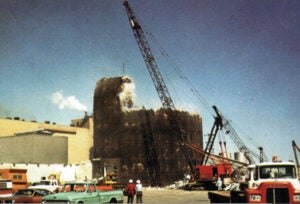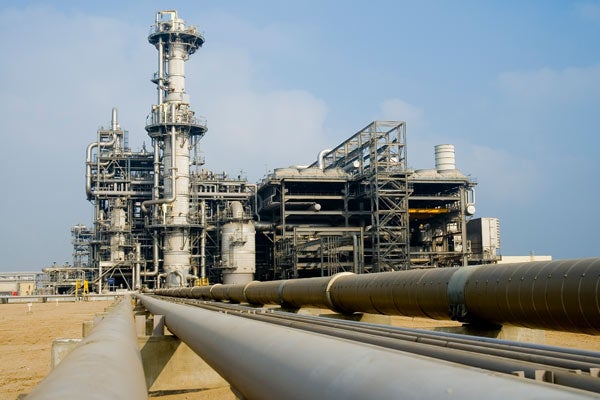The transformative increases in current and expected future domestic natural gas production have spawned yet another energy debate: Should the U.S. should export natural gas? In May, the Department of Energy (DOE) conditionally approved Freeport LNG’s application (submitted December 2010) to export 1.4 Bcf/d from its existing liquefied natural gas (LNG) terminal at Quintana Island, Texas, for 20 years. Asia represents the most likely market for LNG, particularly China and Japan. The authorization remains subject to environmental review by the Federal Energy Regulatory Commission. The policy implications of the DOE’s decision are underscored by the 19 export applications pending at the agency.
Opponents of the exportation of natural gas contend that it will increase domestic prices, harming U.S. manufacturers and consumers, and that expanding the market for natural gas will promote production of and increase reliance on fossil fuels. In literally his first moments as secretary of energy, within days following the DOE’s approval of Freeport’s application, Ernest Moniz expressed an intent to revisit the export of natural gas: “[E]verything is on the table until I have done my analysis.”
Secretary Moniz’s intervention portends a further intrusion of politics into energy policy, economic assessments, and law. It is unlikely that Secretary Moniz’s personal “analysis” will change the outcome; Freeport and other export projects should obtain export authority. More importantly, any further extension of the already prolonged regulatory process will not improve the quality of the decision-making and will likely engender uncertainties in the market.
The Law and DOE Policy
The Natural Gas Act (NGA) requires that the secretary of energy authorize any export of natural gas. The NGA further directs the granting of export authority, unless the secretary finds that the request will “not be consistent with the public interest.” The law creates a rebuttable presumption that the export of natural gas advances the public interest, obligating opponents to present an affirmative showing that the export will be adverse to the public interest.
The DOE assesses requests for export authority based on its 1984 Policy Guidelines, which favor market resolutions: “The market, not government, should determine the price… of [exported] natural gas…. The federal government’s primary responsibility in authorizing [exports] should be to evaluate the need for the gas… while minimizing regulatory impediments to a freely operating market.”
Freeport asserted that exports would provide economic benefits through increased domestic natural gas production and a “material improvement” in the nation’s balance of trade. It also maintained that the exports would have only a “minimal impact” on domestic natural gas prices. Freeport also advocated that the exports would facilitate natural gas’s ability to displace coal and gasoline and thus reduce greenhouse gas emissions globally.
The EIA and NERA Studies
The DOE commissioned the Energy Information Administration (EIA) to assess the impacts of additional natural gas exports on domestic production and prices. It also retained NERA Economic Consulting to assess the macroeconomic impact. Their studies found that increased exports would:
- Yield overall “net economic benefits”—the greater the export level, the greater the benefit.
- Increase domestic natural gas prices, but only modestly; increased domestic production and the need for the delivered price (that is, adding LNG transport costs) to remain competitive with alternative foreign sources would restrain prices.
- Benefit certain industries and workers and be detrimental to others.
The DOE accepted the studies’ finding of “net economic benefits” and agreed that international market forces should appropriately constrain domestic prices. With respect to arguments based on exports injuring segments of society, the DOE sagely responded: [T]he public interest requires us to look to the impacts to the U.S. economy as a whole, without privileging the commercial interests of any industry over another[;]… resource allocation decisions… are better left to the market, rather than the Department, to resolve.”
Time for Decision
Assessments of the economic consequences of regulatory decisions, particularly on a global stage, can never promise 100% accuracy; human judgment is not infallible, and basic assumptions inevitably change. Thus, opponents can readily challenge any regulatory decision supported by economic studies based on the uncertainties inherent in predicting the future. Policy makers must distinguish between legitimate questions that demonstrate analytical deficiencies that may taint a study and simply partisan opposition to the conclusions of a study.
Correspondingly, unless studies are completed and implemented in nanoseconds, “updated” data will always be available. Opposition to policy decisions on the ground that the data relied upon is “outdated” ignores that comprehensive studies require time. Pleas to delay regulatory decisions to allow “data updates” should be resisted, absent a most compelling showing that intervening events have demonstrated critical deficiencies in the operative assumptions.
Hopefully, Secretary Moniz’s suggestion that his agency suspend further action on natural gas exports pending his “own analysis” represents simply a rookie mistake made without appreciation of the completeness of the record. The DOE decision encompasses more than 100 pages, adheres to the existing law and DOE policy, and is supported by comprehensive studies by nationally recognized entities. The DOE analysis appreciates that the market will respond to any regulatory decision and recognizes the market’s “invisible hand” best promotes the greater good (as opposed to the regulator protecting one group at the expense of all). Ideally, Secretary Moniz’s personal analysis will expeditiously concur.
— Steven F. Greenwald (stevegreenwald@dwt.com) leads Davis Wright Tremaine’s Energy Practice Group. Jeffrey P. Gray (jeffgray@dwt.com) is a partner in the firm’s Energy Practice Group.









